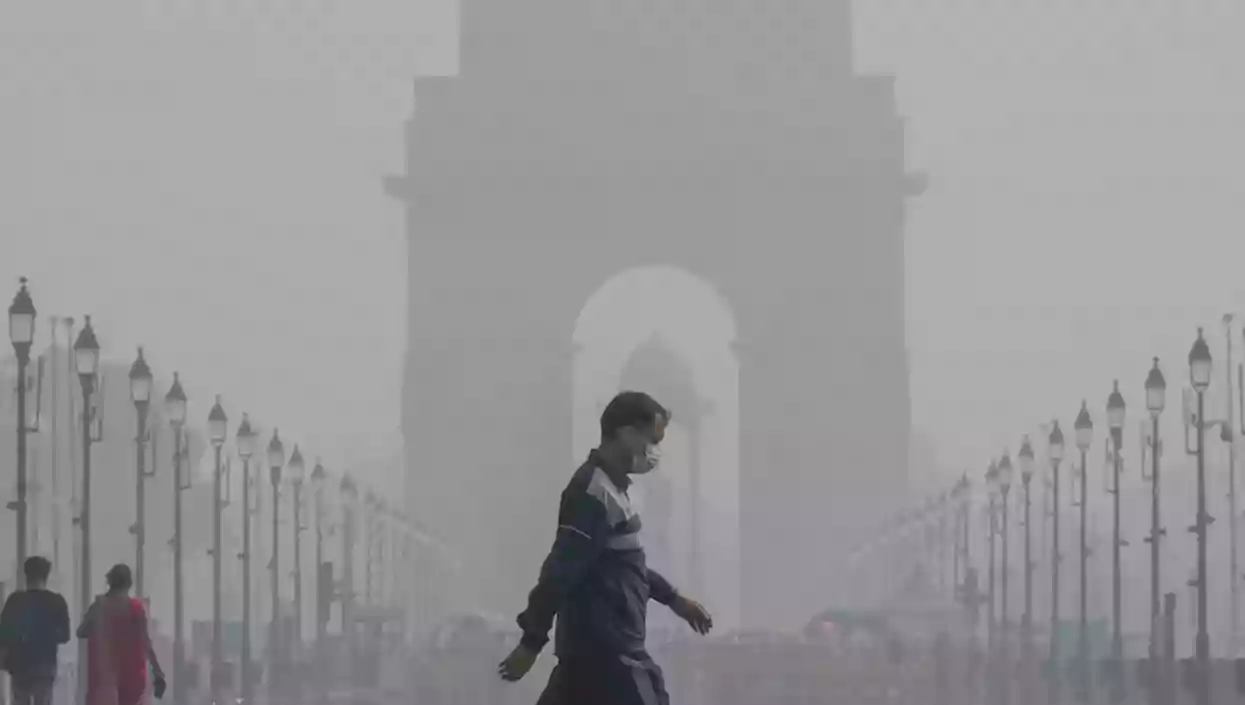SC halts mosque survey orders, restricts lower courts in pending cases
.gif)
.gif)

Delhi and the National Capital Region (NCR) experienced yet another day of choking smog and severe air quality on Saturday, November 16. The Air Quality Index (AQI) in several areas, including Shadipur (457), Jahangirpuri (445), and Narela (449), remained in the 'severe' category, according to the Central Pollution Control Board (CPCB). The prolonged smog has persisted for four consecutive days, causing health concerns across the region.
To address the deteriorating air quality, the Delhi government has implemented stage III of the Graded Response Action Plan (GRAP). Measures include banning private BS III petrol and BS IV diesel vehicles, prohibiting certain interstate buses, and halting private construction activities. Violators of the vehicle ban will face a hefty ₹20,000 fine, while the transport department has deployed 84 teams and 280 personnel to enforce these rules.
In addition, the government announced staggered office timings to reduce traffic congestion. Delhi Chief Minister Atishi outlined the revised schedule, with central government offices operating from 9 am to 5:30 pm, Delhi government offices from 10 am to 6:30 pm, and Municipal Corporation of Delhi (MCD) offices from 8:30 am to 5 pm. Delhi Lieutenant Governor V K Saxena approved this measure, though he criticized the delayed implementation of other pollution control strategies discussed earlier.
Public transport is being bolstered to accommodate the restrictions. Metro trains will make an additional 60 trips daily, while 106 shuttle buses will run to support commuters. Schools for students up to Class 5 will shift to online learning from Monday to minimize health risks for children.
According to the Centre’s Decision Support System for Air Quality Management, stubble burning was the largest contributor to Delhi’s pollution on Thursday, accounting for 33.3% of emissions. Vehicular emissions were the second-largest contributor at 11.9% on Friday. The primary pollutant remains PM2.5, fine particles that pose significant health risks due to their ability to penetrate deep into the lungs and bloodstream.
Mahesh Palawat of Skymet Weather Services noted a slight improvement in air quality due to wind speeds of 8–12 kmph. However, pollution levels are expected to remain in the 'very poor' category despite these minor changes. Authorities continue to monitor the situation closely as 18 of Delhi’s 39 monitoring stations reported 'severe' air quality on Friday evening.